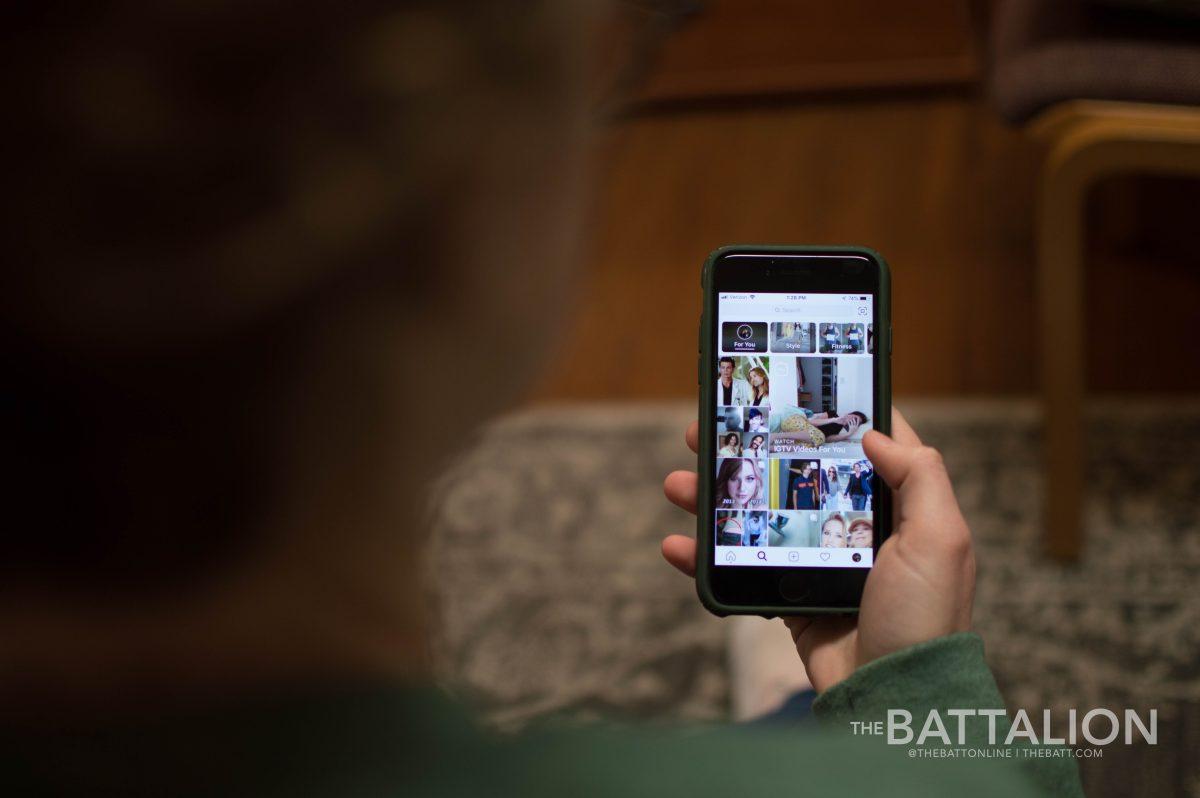Facebook, Instagram, Twitter, LinkedIn and other social media platforms are made for being part of an online community, but employers can also watch someone’s feed for certain behaviors.
Although a person’s online presence may be on a private setting, employers are still legally allowed to ask for access to people’s accounts so they can view posts before hiring or to monitor them at a current job, said Brian Holland, law professor at Texas A&M School of Law. According to CareerBuilder, 70 percent of employers use social media for finding information about job candidates and 48 percent check their current employees accounts.
While there are currently no laws directly surrounding social media privacy and employers, Holland said The Fair Credit Reporting Act has been the predominant law used in these types of discussions. Focused on the use of credit reports in employment decisions, the act was meant to prevent employers from discriminating against or choosing not to hire a potential employee based on their credit scores or other identifying factors.
“Behind that was in part a worry that credit reports themselves would bias against applications based on race and gender and so forth,” Holland said. “That doesn’t fit very well with social media. So we have almost no laws at this point, at least at the federal level, that are applicable to an employer’s search of social media for an employment application. In fact, I think that students might be shocked to find out just how far employers are allowed to go.”
Holland said employers will check on publicly available information or send a friend request to see the information on someone’s profile to access more of an applicant’s social media. There are 26 states that have restricted the lengths to which employers can access information and 16 states apply to restrictions on educational institutions, according to the National Conference of State Legislatures.
“In most states, employers are permitted to force you to disclose access, to either friend them or even potentially provide them access through pulling up the account for them,” Holland said. “Getting passwords — although some employers have used that tactic — has been frowned upon, but forcing you to allow them access by accepting their friend request for the most part in most states at this point … is perfectly legal.”
Assistant professor of communication Anna Wolfe teaches the importance of online presence through an extended learning activity in her organizational communication course. Students analyze one another’s social media accounts then respond to a questioner about the person’s online persona to learn about recognizing the best practices for their accounts.
“The purpose of that is to help them understand technology as a tool and to understand how their online presence can help them and hurt them when they’re applying to jobs and in their professional lives,” Wolfe said. “In today’s society, especially if you’re going for a communication oriented job in marketing or public relations, it’s important for you to have an online presence but for that online presence to be very thoughtful and intentional.”
Samantha Wilson, executive director at A&M’s Career Center, said she recommends students check their social media accounts now to prepare an online presence for potential employers.
“Sit down and look at those accounts — look at Instagram, look at Facebook, look at the other kinds of platforms that you have where you’re putting things out there and really assess that, what kind of image does that present,” Wilson said.
Blake Parrish, director of marketing, communications and public relations for Mays Business School, said students should follow accounts similar to the interests of companies they hope to work. his Parrish said this will help potential employees find companies that match values, voice and tone of one another.
“Many companies use social media to reflect their culture,” Parrish said. “A company culture means you could have a mission and value statement that could be posted on the walls, but what are those people all about that are in that company? Do they believe in the mission and do they act that out? … To sum it up, I would call culture what really happens within an organization, not just what is stated but what is done.”
Instructional assistant professor Nancy Parish teaches introduction to social media and said social media can be used to communicate with and learn about companies, find jobs and follow experts in a job seeker’s fields of interest. Parish said there is potential for people in the field to connect with students seeking advice from the experts through social media platforms, such as Twitter or LinkedIn.
“If you’re interested in going into a certain field, find people that are doing it,” Parish said. “Then follow them. See what they’re posting, interact with them. I wish I had this when I was young because I would have loved to interact with people in the PR industry.”
The Student Employment Office will be hosting an Online Persona workshop on Jan. 29 from 3 to 4 p.m. at the Pavilion 236.
Online persona affects opportunities
January 23, 2019
Photo by Photo by Brandon Holmes
In many states, there are few laws and regulations restricting employers from viewing perspective hire’s social media accounts.
0
Donate to The Battalion
$2790
$5000
Contributed
Our Goal
Your donation will support the student journalists of Texas A&M University - College Station. Your contribution will allow us to purchase equipment and cover our annual website hosting costs, in addition to paying freelance staffers for their work, travel costs for coverage and more!
More to Discover










